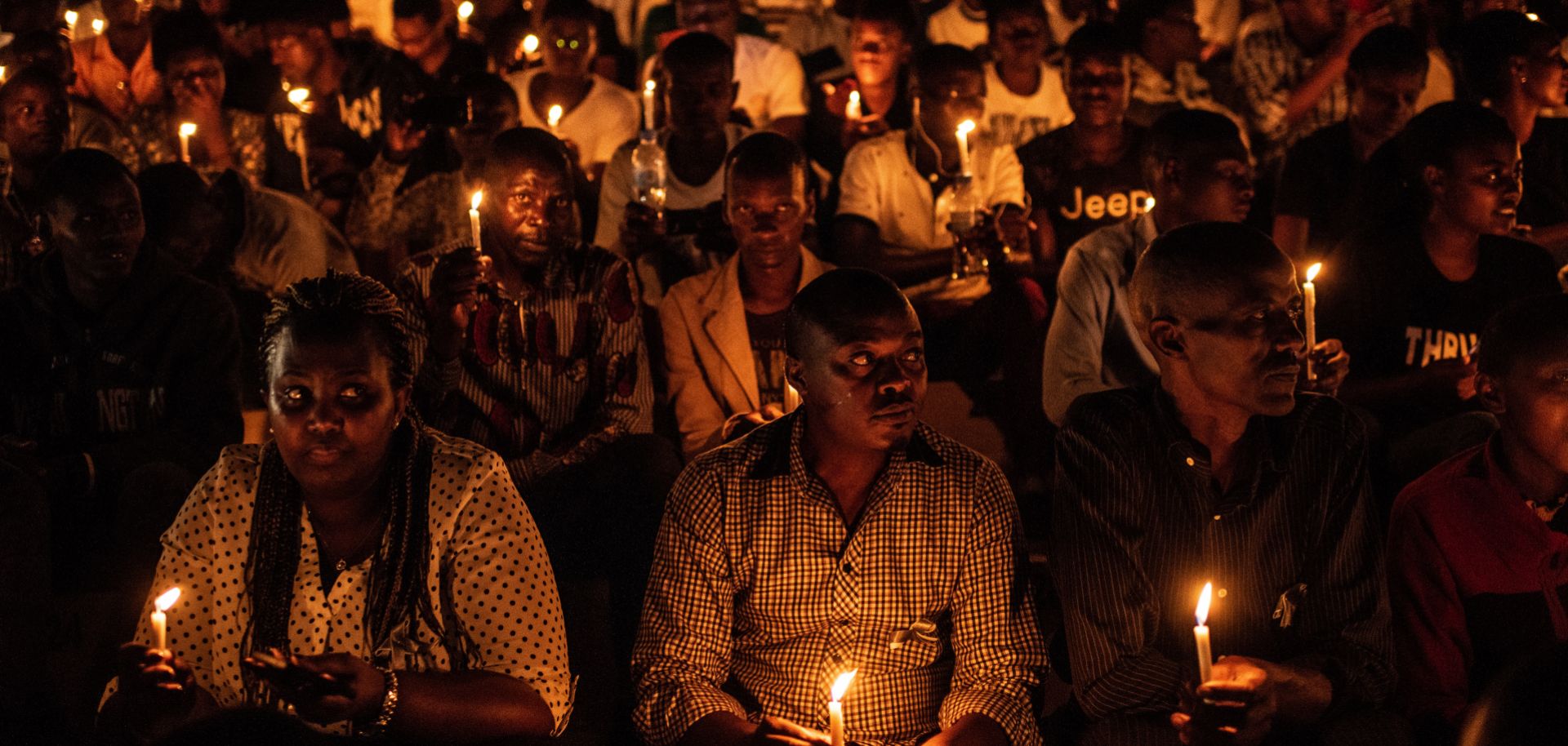ASSESSMENTS
The Geopolitical Roots of the Rwandan Genocide
Apr 9, 2019 | 05:00 GMT

People hold candles during a ceremony commemorating the 25th anniversary of the Rwandan Genocide on April 7, 2019, at the Amahoro Stadium in Kigali. A geopolitical clash between rival movements in Africa helped set the ground for the vicious killing of 1994.
(ANDREW RENNEISEN/Getty Images)
Highlights
- Wider geopolitical factors such as the continent-wide battle between European powers' local allies and Marxist-inspired African nationalist groups helped pave the way for the Rwandan Civil War and subsequent genocide.
- Hutu hard-liners put their plans for a genocide into force amid fears that the ongoing peace process would see them lose control over Rwanda.
- The Tutsi-led Rwandan Patriotic Front would not have been able to pose a threat to the Hutu government in Kigali if it did not have the support of revolutionaries in places like Uganda, Tanzania and Mozambique.
Subscribe Now
SubscribeAlready have an account?
